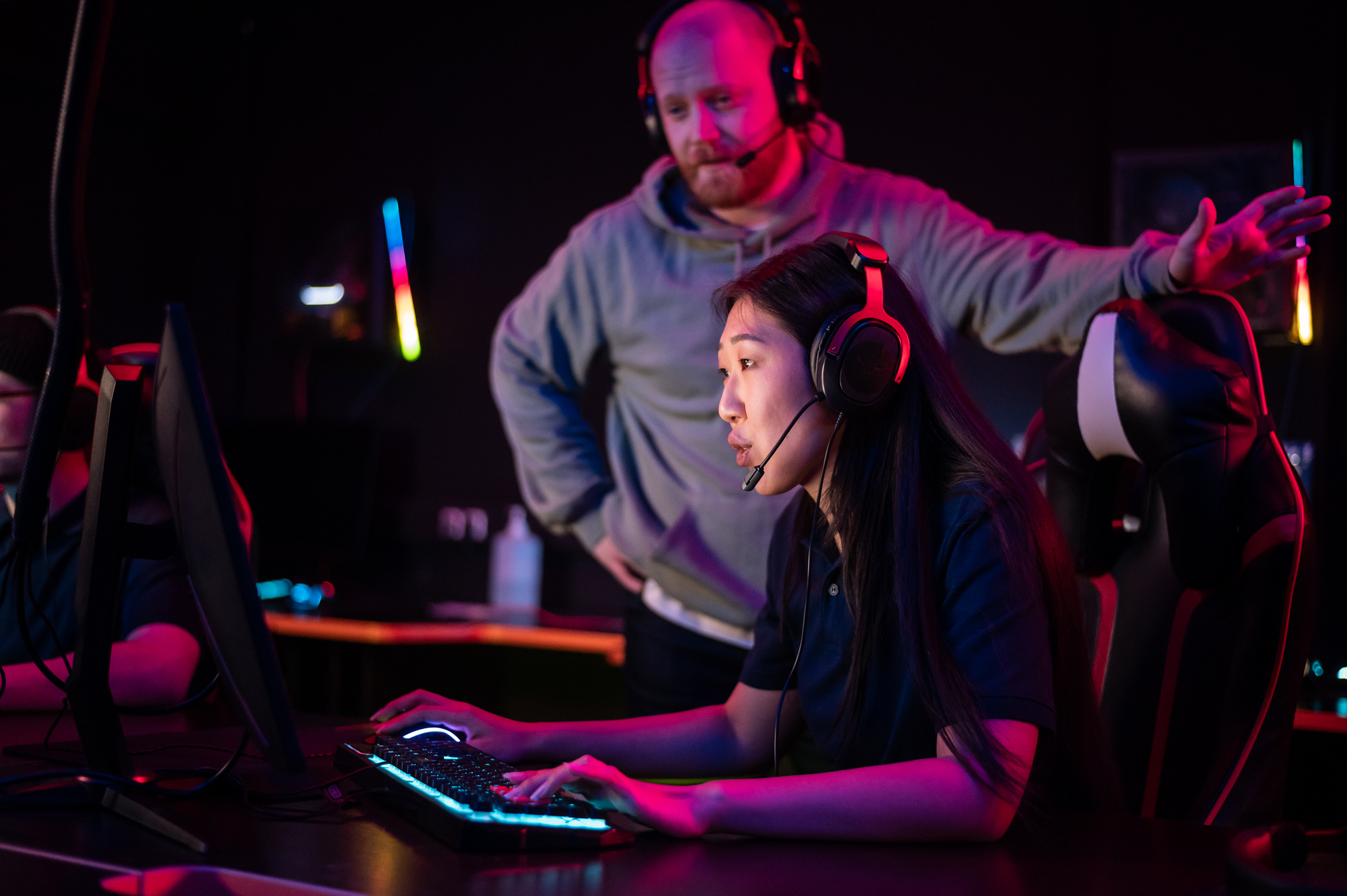E-gaming has emerged as a dominant force in modern entertainment, reshaping how people consume and interact with media. The gaming industry’s rapid growth and technological advancements have blurred the lines between traditional forms of entertainment and interactive digital experiences. Gaming now influences various aspects of popular culture, from fashion to music, and has become a central pillar of the entertainment landscape.
This shift is evident in the rising popularity of game-based TV shows and movies, as well as the increasing crossover between gaming and other forms of media. Streaming platforms have embraced gaming content, with millions of viewers tuning in to watch live gameplay and esports tournaments. The interactive nature of games provides a level of engagement that passive forms of entertainment struggle to match, drawing in audiences of all ages and backgrounds.
As technology continues to advance, the boundaries between gaming and other forms of entertainment are likely to become even more fluid. Virtual and augmented reality technologies promise to create immersive experiences that further blend the digital and physical worlds. This evolution of e-gaming is not just changing how people are entertained, but also how they socialize, learn, and express themselves creatively.
The Rise of E-Gaming in the Entertainment Landscape
E-gaming has transformed from a niche hobby into a global entertainment phenomenon. Its growth has been fueled by technological advancements, increased accessibility, and shifting consumer preferences.
From Niche to Mainstream: The Evolution of Gaming
Video games have come a long way since their inception. What started as simple pixelated graphics and basic gameplay has evolved into complex, immersive experiences. The gaming industry now rivals traditional forms of entertainment in terms of revenue and audience size.
This shift began with the rise of multiplayer games and online connectivity. Titles like World of Warcraft and Call of Duty created vast communities of players, fostering social connections and competitive gameplay.
E-sports emerged as a professional competitive scene, attracting millions of viewers worldwide. Major tournaments now fill stadiums and offer prize pools rivaling those of traditional sports.
Technological Advancements Shaping the Future
Graphics improvements and processing power have made games more realistic and engaging. High-definition displays, virtual reality, and augmented reality technologies are pushing the boundaries of immersion.
VR headsets like Oculus Rift and PlayStation VR allow players to step inside virtual worlds. AR games like Pokémon Go blend digital elements with the real world, creating new forms of interactive entertainment.
Streaming platforms such as Twitch and YouTube Gaming have revolutionized how people consume gaming content. Live broadcasts of gameplay and e-sports events attract massive audiences, turning skilled players into celebrities.
The Impact of Mobile and Cloud on Accessibility
Mobile gaming has brought video games to a wider audience than ever before. Smartphones and tablets allow people to play anywhere, anytime. Simple yet addictive games like Candy Crush and Angry Birds have introduced gaming to demographics previously uninterested in the medium.
The rise of free-to-play models and microtransactions has changed how games are monetized. This approach has made many games more accessible while generating substantial revenue for developers.
Cloud gaming services are removing hardware barriers, allowing high-quality games to be played on less powerful devices. Players can now access AAA titles through streaming, without the need for expensive consoles or gaming PCs.
Emergence of Esports as a Global Phenomenon
Esports has grown from niche competitions to massive international events with millions of viewers and substantial prize pools. The industry now attracts major sponsors, professional teams, and widespread media coverage.
The Spectacle of Esports Tournaments
Large-scale esports events have become impressive spectacles. The League of Legends World Championship draws massive online viewership and fills stadiums. Dota 2’s The International offers prize pools exceeding $30 million.
These tournaments feature elaborate production values, including pre-game shows, analyst desks, and professional commentators. The atmosphere rivals traditional sports events, with passionate fans cheering for their favorite teams and players.
Esports competitions now span various game genres, from multiplayer online battle arenas to first-person shooters and fighting games. Popular titles like Fortnite have also embraced the competitive scene, hosting high-profile tournaments with celebrity participants.
Comparison to Traditional Sports and Their Intersection
Esports organizations increasingly adopt structures similar to traditional sports teams. They have coaches, training facilities, and player contracts. Some traditional sports franchises have invested in esports teams, recognizing the growing market.
The skills required for top-level esports play include quick reflexes, strategic thinking, and teamwork. These attributes parallel those needed in many traditional sports.
Esports has gained recognition from the International Olympic Committee, with discussions about potential inclusion in future Olympic Games. This acknowledgment highlights the legitimacy of competitive gaming as a sport.
Betting and Fantasy Leagues in Esports
Esports betting has become a significant industry, with dedicated platforms offering wagers on match outcomes, player performance, and in-game events. This trend mirrors the betting culture in traditional sports.
Fantasy esports leagues have also emerged, allowing fans to create teams of professional players and earn points based on their performance. These leagues add another layer of engagement for viewers.
Regulators are working to establish guidelines for esports betting to protect consumers and maintain competitive integrity. As the industry matures, responsible gambling practices are becoming more important.
Business Models and Revenue Streams
E-gaming companies have developed diverse ways to monetize their products and services. These strategies range from partnerships to content creation, creating multiple income sources.
The Role of Sponsorships and Partnerships
Gaming companies form alliances with brands to boost revenue. These collaborations often involve product placement within games or sponsorship of e-sports events. Large tech firms and beverage manufacturers frequently partner with gaming organizations, providing financial support in exchange for exposure to the gaming audience.
Partnerships extend beyond traditional sponsorships. Gaming firms team up with hardware manufacturers to create branded peripherals like headsets and keyboards. These joint ventures generate income through product sales and royalties.
Media Rights and Streaming Content
Streaming platforms play a key role in e-gaming’s business model. Twitch, YouTube Gaming, and Facebook Gaming compete for exclusive rights to broadcast major e-sports tournaments. These deals provide substantial income for game publishers and event organizers.
Individual streamers also contribute to this revenue stream. Popular content creators sign contracts with platforms, agreeing to stream exclusively on a specific service. In return, they receive a portion of subscription and ad revenue.
Game publishers sometimes create their own streaming services, keeping content distribution in-house and maximizing profits.
Merchandising and Brand Collaborations
E-gaming brands capitalize on fan loyalty through merchandising. This includes selling team jerseys, collectible figurines, and limited-edition gaming accessories. Some companies create virtual items for use within games, tapping into the growing market for digital goods.
Collaborations with fashion brands have become increasingly common. These partnerships result in limited-edition clothing lines that appeal to gamers and fashion enthusiasts alike. Such crossovers expand the reach of gaming brands beyond their traditional audience.
E-sports teams often launch their own product lines, creating an additional revenue source separate from competition winnings.
The Cultural Impact of Gaming
Gaming has transformed social interactions, opened doors for diverse communities, and created new career paths. Its influence extends far beyond entertainment, reshaping cultural norms and societal structures.
Social Dynamics and Community Building
Gaming fosters connections across geographical boundaries. Online multiplayer games bring people together, allowing them to form friendships and communities based on shared interests. These virtual spaces become hubs for social interaction, where players collaborate, compete, and communicate.
Platforms like Twitch and YouTube Gaming have amplified the social aspect of gaming. Streamers build dedicated followings, creating micro-communities around their content. These platforms serve as gathering places for fans to discuss games, share strategies, and engage with their favorite content creators.
Gaming events and conventions further strengthen these communities. Large-scale tournaments and expos draw thousands of attendees, providing opportunities for face-to-face interactions among players who may have only met online.
Gaming as a Platform for Inclusivity
The gaming industry has made strides in promoting inclusivity. Game developers are creating more diverse characters and storylines, allowing players from various backgrounds to see themselves represented in virtual worlds.
Accessible gaming options have expanded, with features like customizable controls and colorblind modes becoming more common. This allows individuals with disabilities to participate in gaming experiences alongside their peers.
Online gaming communities have formed around specific identities, providing safe spaces for marginalized groups. LGBTQ+ guilds in MMORPGs and women-only tournaments in esports are examples of how gaming can empower underrepresented communities.
Career Opportunities in Esports
The rise of competitive gaming has created a new career landscape. Professional gamers can now earn substantial incomes through tournament winnings, sponsorships, and streaming revenue.
Esports organizations employ a wide range of professionals beyond players. Roles such as coaches, analysts, managers, and marketing specialists have emerged to support the growing industry.
Educational institutions have recognized the potential of esports. Some universities now offer scholarships for skilled gamers and have developed degree programs focused on esports management and game design.
The esports ecosystem has also created opportunities in broadcasting and event production. Commentators, hosts, and production crews are in demand for both online and live gaming events.












